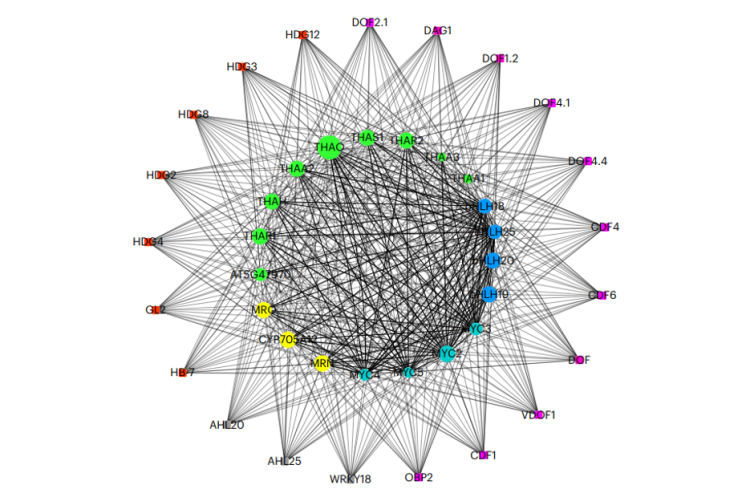Synthetic Biology: Rewiring of Plant Fitness Circuits
Establishment of robust and sustainable production pipelines for plant bioactive metabolites is crucial for efficient exploitation, yet this is often hampered by the complexity of the molecules and their biosynthetic pathways. As such, the number of identified bioactive plant metabolites vastly exceeds that of those that are industrially exploited. Green chemistry via plant metabolic engineering can overcome current production bottlenecks if we find ways to increase our capacity to manage plant metabolism. Plants evolved strict, yet not fully understood, regulatory networks that control plant metabolism and thereby safeguard plant fitness in a continuously changing environment. The challenge that we face, at least from a human perspective, is to gain control of such programmed fitness decisions, because they cause enormous, undesired fluctuations in plant metabolite contents. Hence, we require tools to rewire the regulatory networks installed by nature to our needs, namely towards the generation of plant lines with stable and superior metabolite yields. This is a challenge that we are taking up in our synthetic biology projects. Herein, we translate our acquired fundamental insights of plant fitness programs into the design of CRISPR-based tools for plant engineering, comprising CRISPRn, CRISPRa and CRISPRi. Target plants include our models, Arabidopsis and tomato, but also other crop plants, such as chicory (Cichorium intybus), and medicinal plants.

